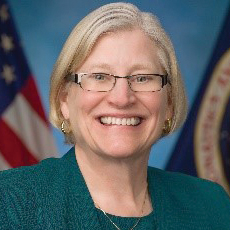It’s Time to Hack the Food Supply
PRESIDENT'S MESSAGE
In late February, the United Nations Intergovernmental Panel on Climate Change (IPCC) released its Sixth Assessment Report—Climate Change 2022: Impacts, Adaptation and Vulnerability. The report, which was approved by 195 governments, including the United States, recognized the interdependence of ecosystems, biodiversity, and people at global and regional levels in its scientific assessment of the impact and risks of climate change. While it would take some time to dig into the details of the full 1,024-page report, the message can be summarized quite succinctly: the situation is dire and will only get worse unless immediate action is taken to mitigate increasing risks.
Specifically looking at the food system, the impact of climate change is significant. Atmospheric concentrations of methane and nitrous oxides were higher in 2019 than at any time in at least 800,000 years, driven mainly by increased emissions from livestock production, rice farming, aquaculture, and other high-emitting activities. The last decade was the warmest on record, and scientists predict we are headed toward dangerous temperature increases that will have a detrimental effect on water availability and food production. According to one of the lead authors of the IPCC report’s chapter on food, Rachel Bezner Kerr from Cornell University, “the report demonstrates that climate change—including increases in climate hazards such as flooding, drought, or cyclones—is already affecting food systems, and particularly food security in vulnerable regions.”
The question is this: If the situation is so bleak, what can the science of food community do about it?
While rapid, transformational change is needed to slow the progression of climate change impacts, solutions already exist within food and agriculture that can change our planet’s current trajectory. We can thank you, the science of food community, for much of this innovation.
Industry, governments, and venture funds are making massive investments in game-changing technologies such as vertical farming, AI flavor creation, precision fermentation, gene-editing plants, cellular agriculture, and others that use less land and natural resources and minimize greenhouse gas emissions. Postharvest innovation is also transforming what once would be considered waste into value-added food sources, thereby eliminating a significant contributor of CO2 and methane emissions. And the rise in aggressive, science-based environmental, social, and governance commitments necessitates extensive, high-quality data to validate sustainability claims, measure progress, and increase accountability.
All of this exciting innovation shows immense promise for the future of food and our ability to feed our growing global population. It also leads us to yet another burning question: As we continue to develop technologies and explore new frontiers to produce safe, nutritious food in the face of hotter temperatures, severe weather events, increased drought, loss of land and water species, and other climate-related factors, are they really more sustainable?
At IFT FIRST: Annual Event and Expo, we are bringing the science of food community together to debate, discuss, and dissect this very topic. The scientific program at IFT FIRST, which will be held July 10–13 in Chicago and online, will be centered on whether we have what it takes to hack the food supply and synthesize a more sustainable future. We’ll kick things off with a spirited debate about the role cutting-edge food technologies play in these big picture issues. Our entire scientific program will then provide answers to 25 guiding questions around novel technologies and innovation, health and nutrition, food safety, consumer insights and education, and, of course, sustainability. After two long years apart, I’m excited to see old friends and make new acquaintances while learning about and tackling these critical issues to advance the global food system.
The IPCC report states, “any further delay in concerted anticipatory global action on adaptation and mitigation will miss a brief and rapidly closing window of opportunity to secure a livable and sustainable future for all.” The science of food community has a critical role to play and simply cannot miss this moment. I hope you’ll join us as we formulate new strategies to hack the food supply and contribute to a more sustainable food future together.


